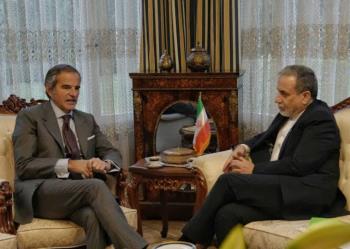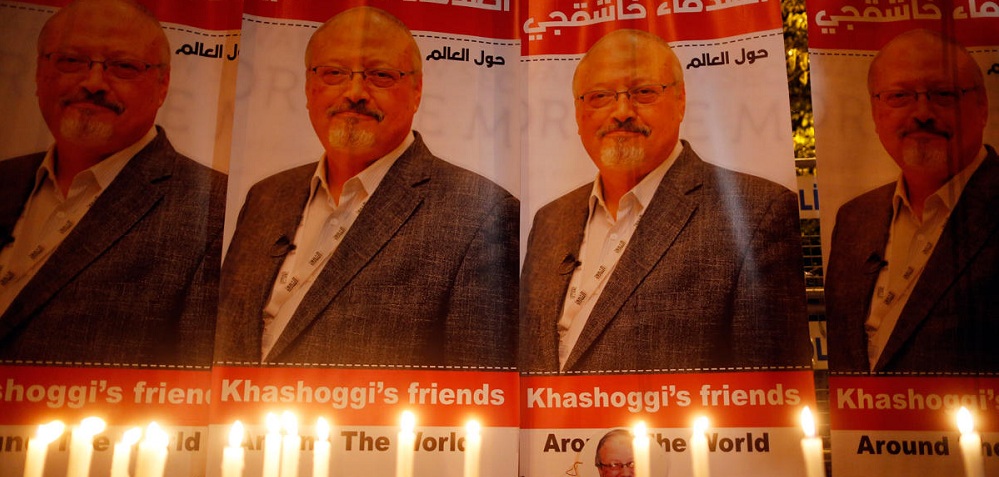Alwaght- Every day, new details of the case of the killing of the Saudi journalist Jamal Khashoggi who was killed upon his entry to the Saudi consulate in Istanbul on October 2 come to the surface amid massive international media coverage. The new information about his murder work like pieces of a puzzle putting to show the reality of Saudi rulers’ crime against their citizen.
In a very latest development CIA has concluded that the Saudi Crown Prince Mohammed bin Salman ordered the killing of his vocal critic. The CIA conclusion came as a month ago, the Saudi public prosecutor on October 20 conformed that the writer was killed at the diplomatic place. The admission came after nearly three weeks of denying any knowledge about the fate of Khashoggi.
Following the announcement, several contradicting stories have been released by the Saudi authorities about the way the journalist was killed, with all of them trying to distance the crown prince from the crime. But after the CIA conclusion, it seems that the young prince and his government find it even more difficult to manage such a highly twisted situation. In fact, the US approach to the Khashoggi’s murder should not be taken as a simple, passing position. Rather, it will determine many of the equations inside Saudi Arabia in general and the fate of bin Salman in particular.
The Arab state fully relies on the security and military protection of the US, something making Washington play a fundamental role in shaping the oil-wealthy kingdom’s political equations. A proof to the claim is the humiliating remarks of the US President Donald Trump during his speech to his supporters in Mississippi in early October, when he very wantonly told his fans that without the US support, the Saudi rulers cannot stay in the rule even for “two weeks”.
Initially, the analysts took the president’s humiliating words as a kind of party propaganda ahead of the midterm election and an instrument to wrest further privileges from Riyadh. It appears that in practice the US can effectively impact the Saudi home politicos. Today prince Mohammed sees himself increasingly close to ousting as every day new details of the crime are revealed.
In the new situation, two scenarios are expected to drive the US policy toward the future of bin Salman.
The first scenario is that the economic interests, huge Saudi ransoms, and applying for further weapons despite the already-signed multi-billion contracts will lead Washington to show leniency with Riyadh. Odds are that the White House will accept huge economic privileges from the Saudis and will spare no effort to clear the de facto ruler of the kingdom from the blame.
This scenario finds firmer grounds of realization if we take into consideration the Israeli full support to the young prince’s rule. Since the killing scandal, the Israelis have gone to great lengths to keep Salman's grip on power as he presented himself to be a good compromiser to the Israeli expansionism by supporting the “deal of the century”, through which Trump seeks to recognize al-Quds (Jerusalem) as the permanent capital of an Israeli state, approve settlements in seized Palestinian lands, and reject the right of return of the displaced Palestinians. With Trump being under the pressure of the pro-Israeli lobbying groups in the US, he will very likely seek a way for bin Salman to get rid of Khashoggi assassination case. Once this scenario comes true, bin Salman will remain in power and will see continued Washington support for his ascension to the throne.
Still, there is another scenario which looks more likely with regard to current US politics. Trump and his administration may find it a must to take a punitive approach to the crown prince. The corollary will be the end of bin Salman’s dream of becoming Saudi King. Trump’s very recent comments on the details of the killing may give a clear picture of his next move. Now that the CIA conclusion has decided that Prince Mohammed himself is blamed for ordering the murder, Trump and the White House undergo heavy domestic and international strains to punish the culprit.
On Saturday, the president said that he will determine on Thursday who ordered the killing. He called the CIA assessment “very premature” but “possible.” He said that Washington will publish a detailed report in which it will be disclosed who ordered the killing. Vice-President Mike Pence, on the other hand, found Khashoggi killing “an insult to the freedom and independence of media.”
But the stances of the influential Republican senators show that bin Salman will possibly face a serious reaction in the US, contrary to his expectation of US tolerance. Senator Lindsey Graham of Southern Carolina, who will soon be appointed as the head of the Senate Committee on the Judiciary, in mid-October called for removal of bin Salman from power.
Bob Corker, the chief of the Senate Committee on Foreign Relations, in a tweet on November 17 said “everything points to the Crown Prince of Saudi Arabia, MbS, ordering Washington post journalist Jamal Khashoggi's killing. The Trump administration should make a credible determination of responsibility before MbS executes the men who apparently carried out his orders.”
This climate in the US politics and the plain and open stances by the US lawmakers make the decisions surrounding Khashoggi killing and the type of punishment highly difficult. The present atmosphere suggests that bin Salman cannot escape the consequences of Khashoggi murder as pressures inside the US and other Western countries to hold him accountable mount.



























